I am trying to demonstrate a buffer overflow via an array index (when there isn't any bounds checking). What I am trying to do is change my bool authenticated = false to true by passing in a bad value.
I am using GCC 4.8.5
arrayVulnerability(int size)
{
int array[4];
bool authenticated = false;
for (int i = 0; i < size; i++)
{
array[i] = size;
}
}
My understanding is that my memory is set up as follows:

I was hoping that by passing an int larger than 4 I would be able to overwrite that position to true but it's not working. I'm curious if I have my memory misunderstood or if I am missing something?
Edit: I printed out the locations as suggested and got the following:
bool authenticated = 0x7ffc4741612f
array[0] = 0x7ffc47416130
array[1] = 0x7ffc47416134
array[2] = 0x7ffc47416138
array[3] = 0x7ffc4741613c
array[4] = 0x7ffc47416140
So it looks like bool authenticated is before my array and my memory layout was wrong. I'm still confused about why it is before my array however.